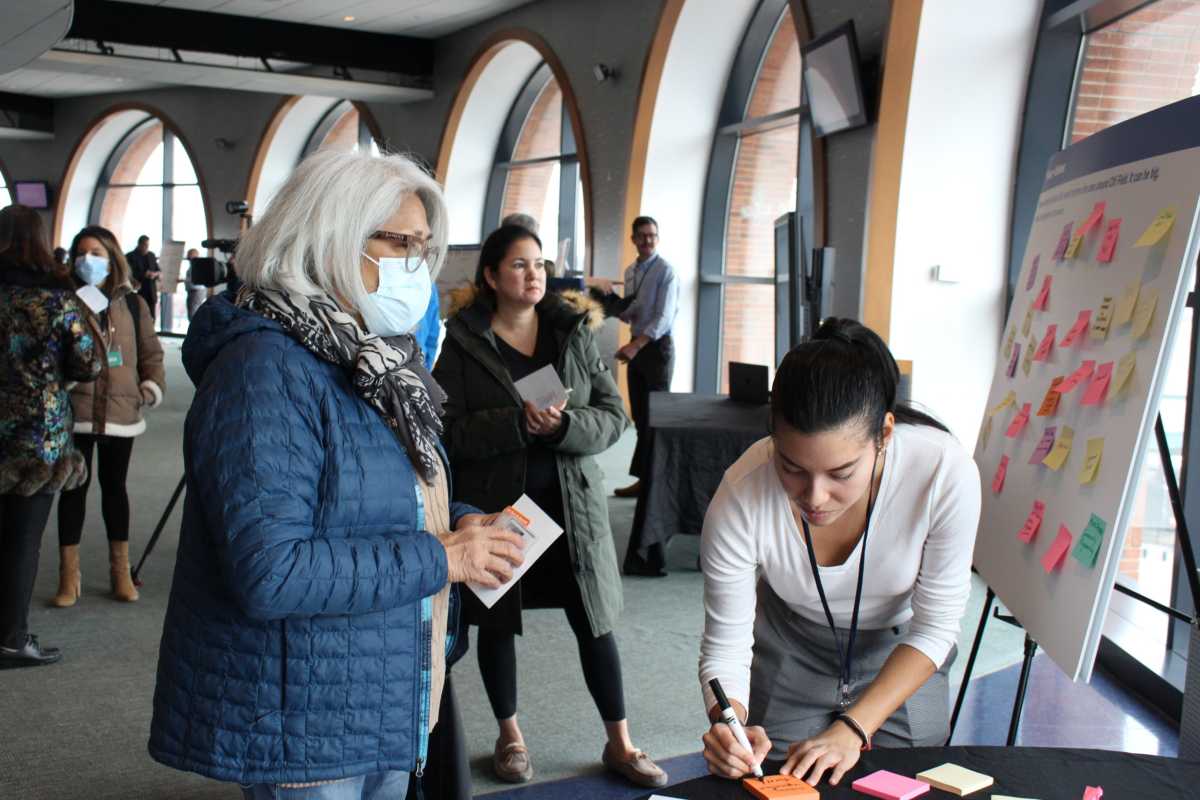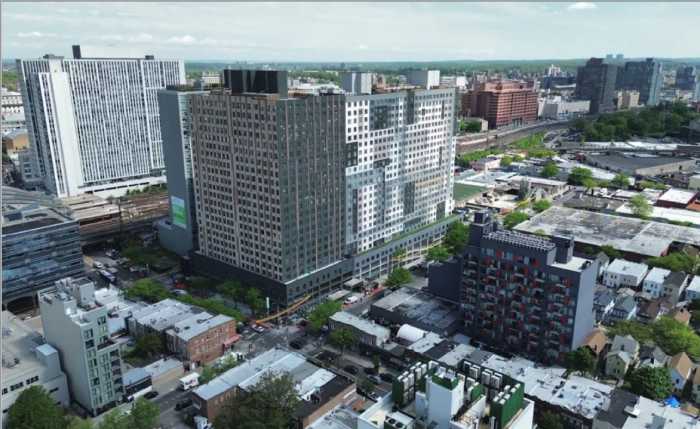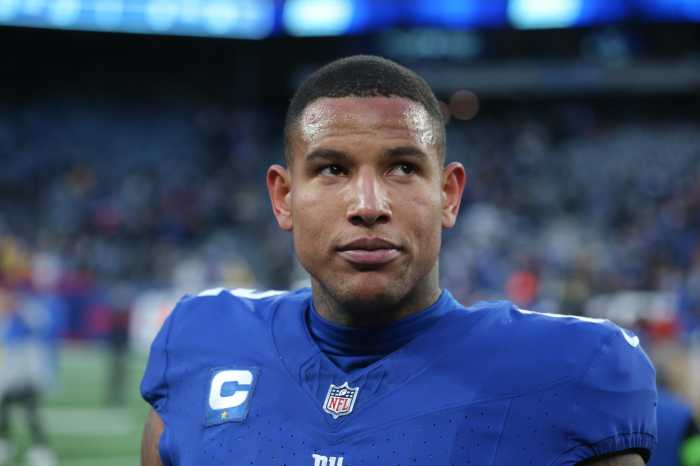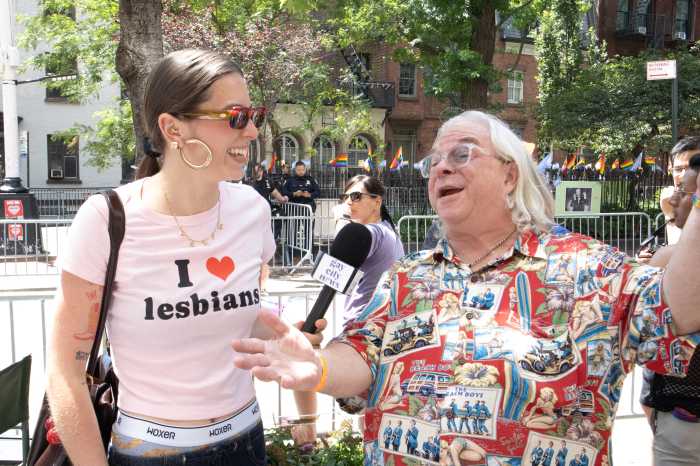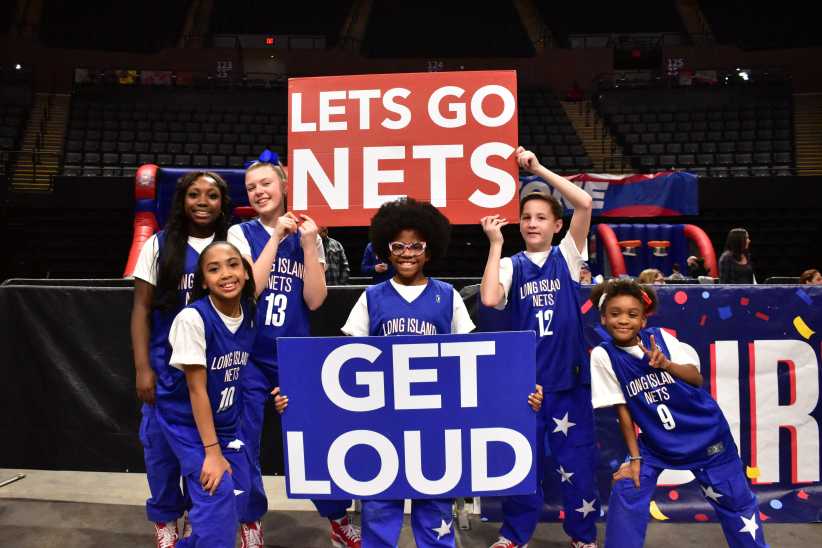About 450 Queens residents attended a public “visioning session” hosted by Mets owner Steve Cohen at Citi Field on Saturday, Jan. 7, to share their ideas on future developments around the stadium’s ballpark.
The community visioning session gave residents an opportunity to share their thoughts through a series of interactive stations focused on the history of the space, improving the Citi Field area, year-round entertainment options, transportation and job creation. At the end of each interactive session, guests gathered in small-group discussions regarding the project.
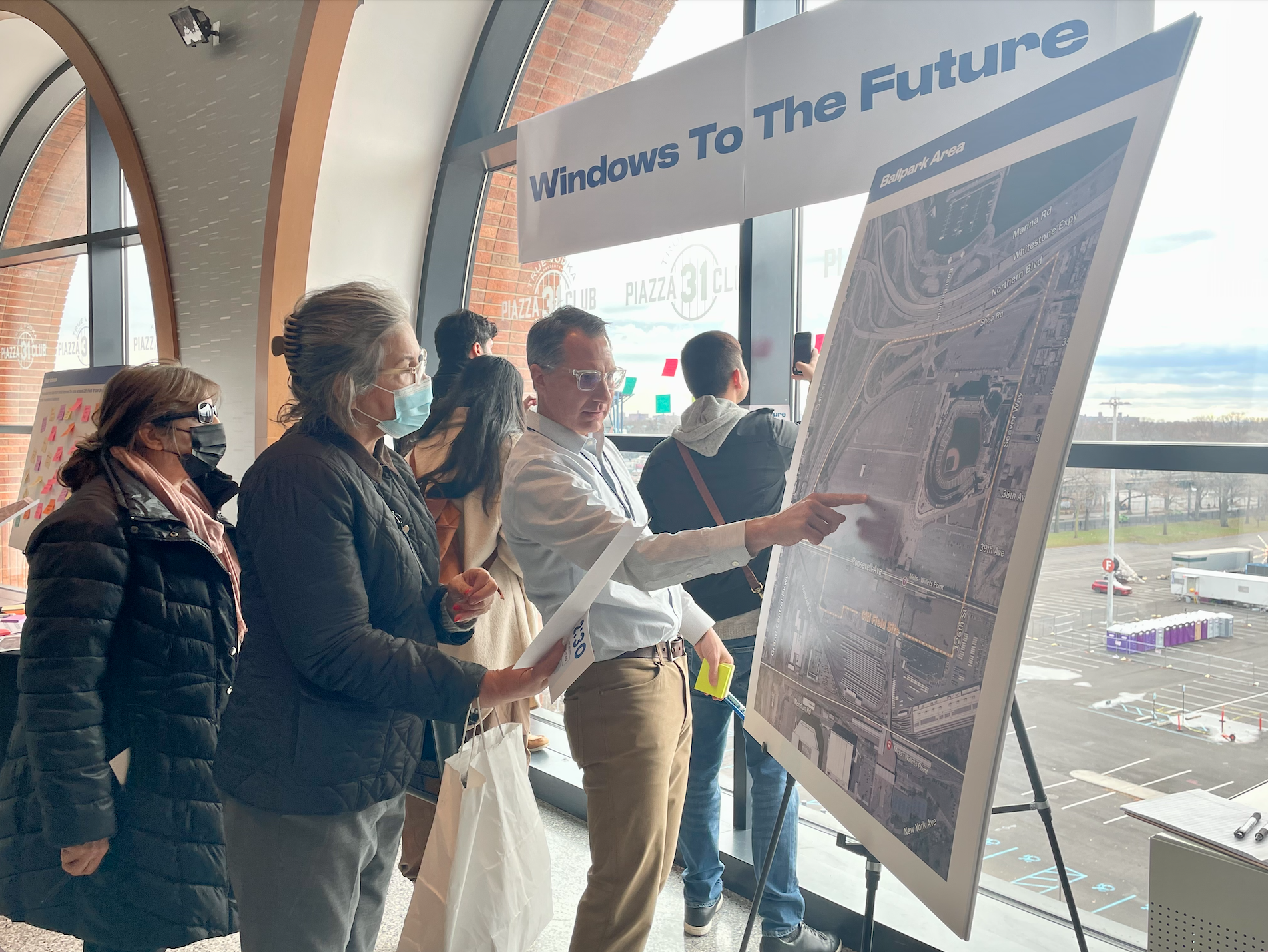
As the Gaming Facilities Location Board announced they would begin accepting applications for three downstate casino licenses this year, Cohen announced his proposal to build a casino or other commercial structures on 50 acres of public parkland surrounding Citi Field that has been used as a parking lot since the 1939 World’s Fair. The area has been used for events such as carnivals, para-athletic sports matches and a variety of other public uses.
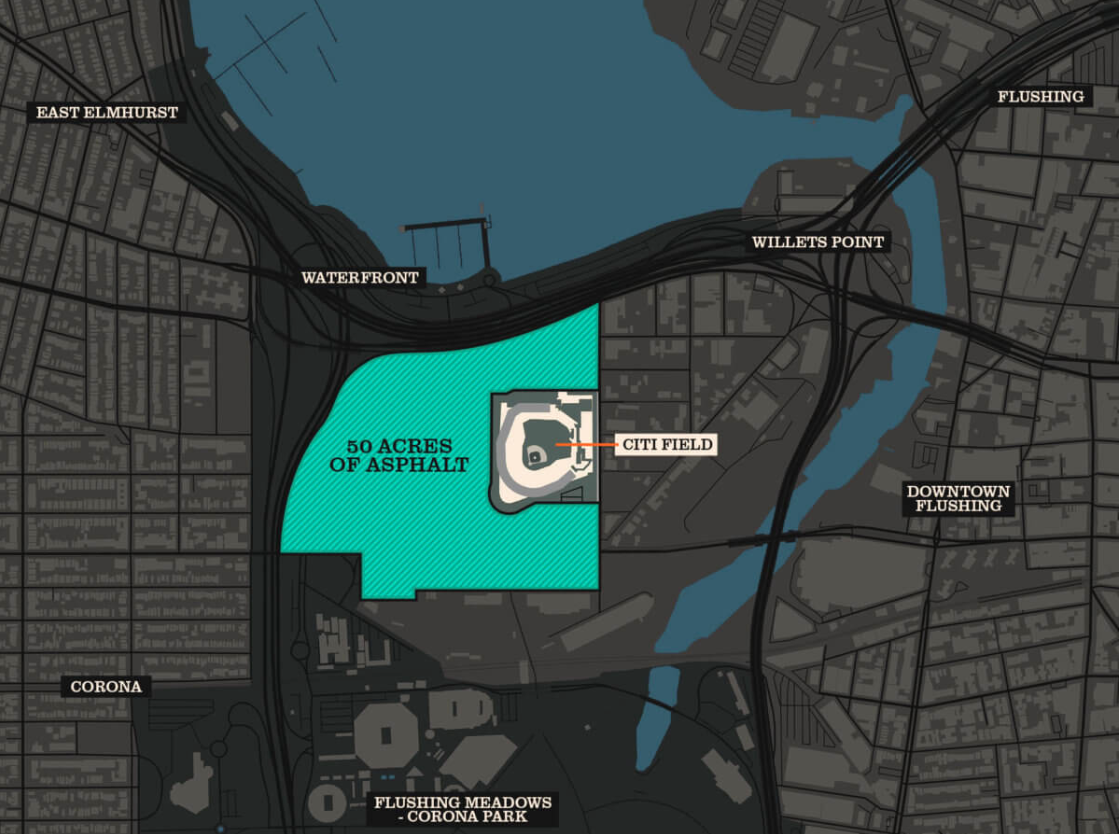
However, Cohen’s plans have received pushback from northeast and central Queens civic leaders who said he made no mention of a casino and instead referred to an “entertainment” venue on “50 acres of vacant asphalt.” The civics also noted that a casino will create quality-of-life issues, traffic congestion and an increase in problem gambling.
When asked about the local organizations willing to take legal action against Cohen’s plans to develop the parkland, Cohen said his team is listening to residents and that the casino is definitely an option.
“We don’t expect everyone to support our ideas, and that’s what the discussion is about,” Cohen said. “We’re going to follow the rules and regulations of the processes of the city and state, and if there are issues along the way, we are going to try and figure out how to solve them.”
Aside from building a casino, Cohen added that he is creating a place where fans can come out and be entertained before and after a Mets game.
“We’re talking about building a park where the community can enjoy access to the marina connecting this area with Flushing Meadows Corona Park,” Cohen said. “We are creating a lot of options for the community and the neighbors to enjoy this area, and create something we are all proud of.”
Cohen’s team officials say the parkland was alienated by the state Legislature in 1961 to be commercially developed for baseball and parking. They also maintained that the area has never been a park “in the truest sense,” and instead it represents “a century of waste, mismanagement and neglect.”
However, for resident Cody Herrmann, parkland alienation — which occurs when a municipality wishes to sell, lease or discontinue the use of municipal parkland — isn’t an appropriate route as it will take a public asset away from the public and given to private developers, she said.
Herrmann also added that a casino is something that would not benefit the community.
“We’re not just talking about 50 acres of land. We’re talking about the other 60 acres of the Special Willets Point District, and the other 29 acres of the Special Waterfront District — they’re all really a congruent set of 150 acres that’s going to have massive amounts of wealth injected into it,” Herrmann said. “That’s the type of wealth that causes displacement; it’s not poverty that causes people to move.”
In terms of the presentation itself, Herrmann said it’s a little misleading to talk about the area as if it’s privately owned, when it’s actually publicly owned parkland.
“The 50 acres should remain publicly owned parkland and if I were a billionaire, I would make a nice big donation to the NYC Parks Department so they can make a nice park,” Herrmann said.
Mariam Bensman, an activist who resides in Richmond Hill, said that she’s annoyed at the deceitfulness of it all.
“They’re not saying he wants to build a casino, and he’s not asking about that,” Bensman said. “My hunch is that they want to come up with a development proposal that would make them a lot of money, such as the casino and maybe a hotel, and they want to provide a plan for public amenities that would buy community support.”
Bensman referred to the parkland as a “public treasure” that has not been alienated and should instead be developed appropriately as a public park and space.
Many attendees shared colorful post-it notes listing ideas that included public art displayed by local artists, concerts, a safer bike route connection, a shopping mall and more green space.
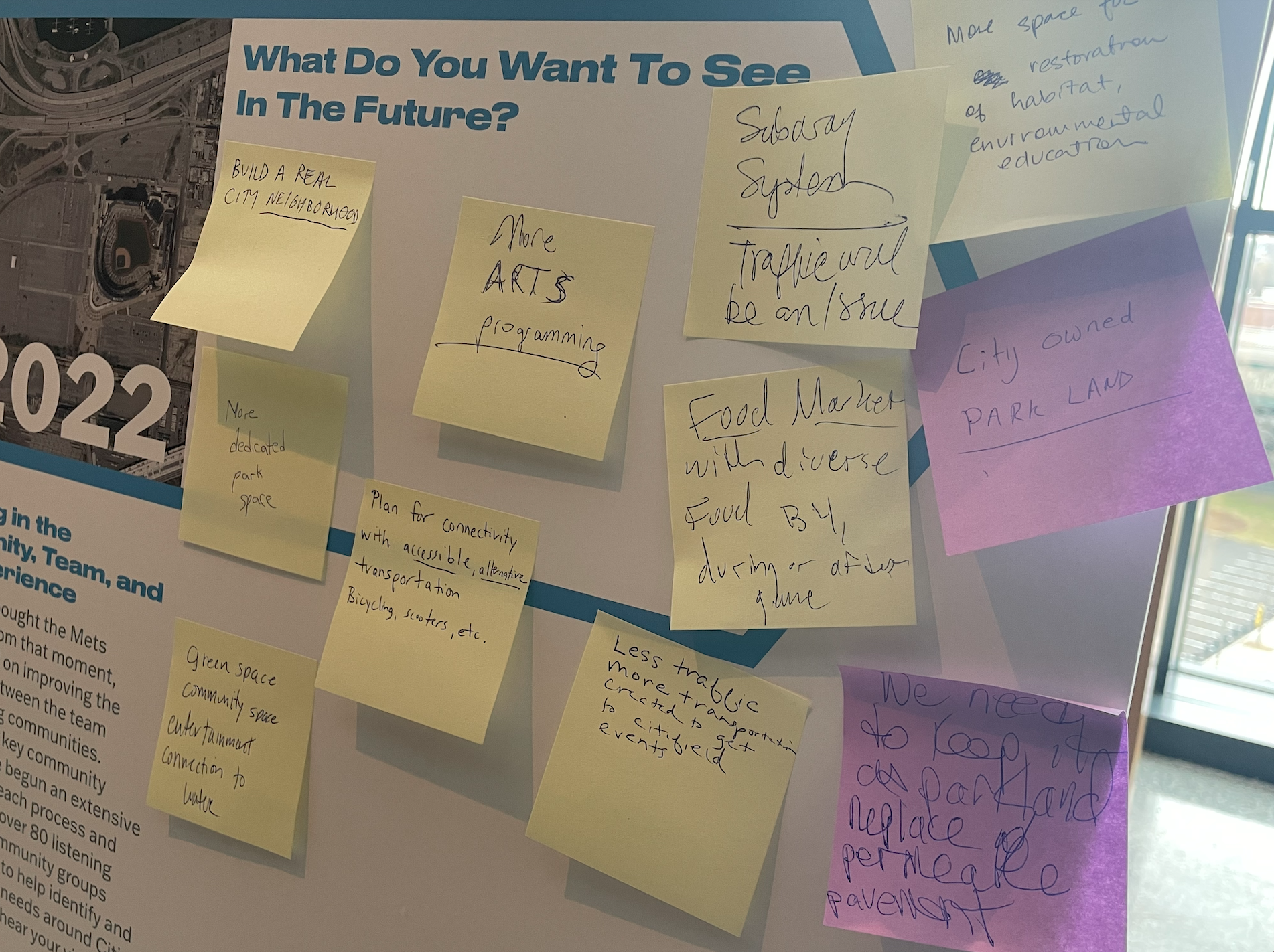
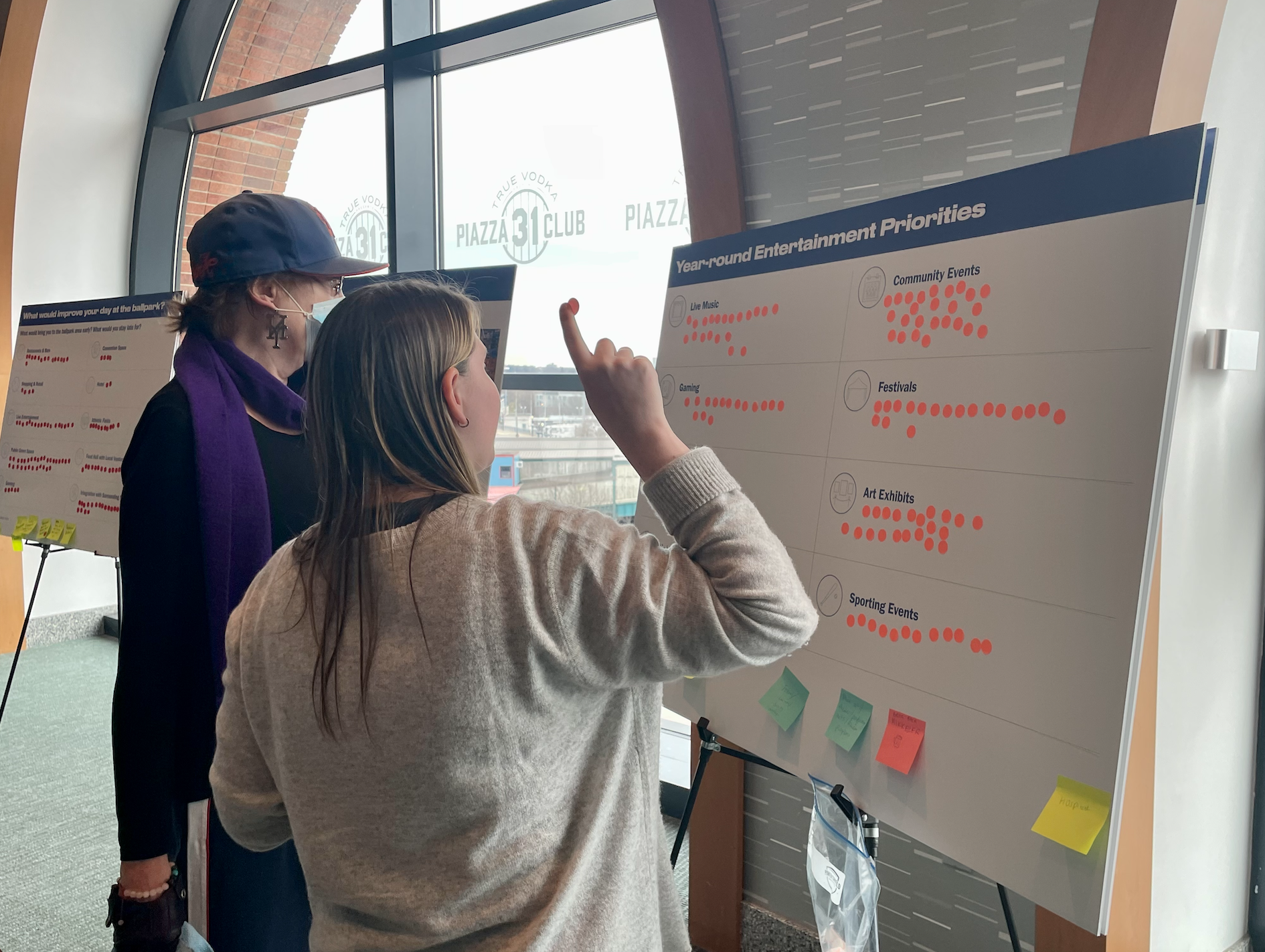
Warren Schreiber, president of the Queens Civic Congress and second vice chairperson of Community Board 7, which covers Flushing, said the Queens Civic Congress has not taken a position on the casino or entertainment center and that their main concern is to maintain the parkland.
“We have concerns about repurposing it for commercial usage. We would like to once again have it as a green space, something that benefits the community,” Schreiber said.
Meanwhile, other attendees were excited about future developments at the ballpark.
“I’m really looking forward to a vibrant area for entertainment, dining, dancing and a year-round use of the space,” said DJ Shug, a die-hard Mets fan. “I think it’s going to be really important to have the right type of police in control, and the only thing I hear about a casino is the ripple of crime that could happen, but I have faith in the NYPD and I have faith that as a city we will figure it out.”
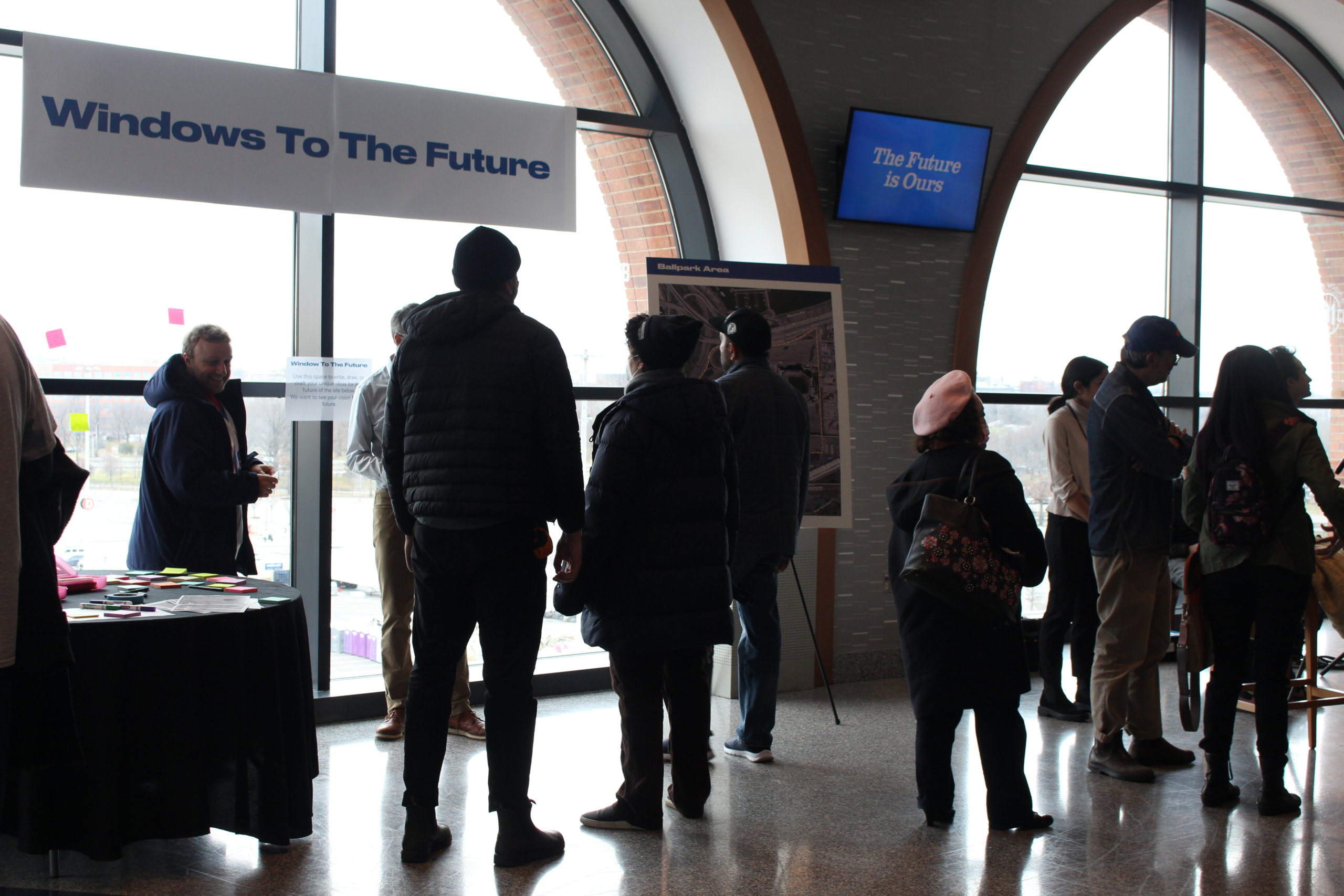
Cindy Custodio, a lifelong Flushing resident, said she’s for the project as long as it considers the surrounding communities in the area.
“You’re always going to get pushback from the immediate area because it affects us. However, if we’re talking about four to five years down the line, if there’s plans to promote a better community for us to somehow be involved and be positively affected and not adversely negatively affected, then I’m for it,” Custodio said. “Anything that betters a community, gets more jobs, puts more spaces and housing, I’m for it.”
While Annabelle Joson welcomes the idea of new developments in the area, she made it clear that she is against plans for the casino.
“I’ve been living here for the past 30 years and I don’t see any improvement. The roads are being paved when it’s election time. I drive everyday to the city, and it’s a struggle driving with potholes. We need to improve our surroundings,” Joson said. “But when it comes to a casino, I already said no, I’m not for it.”
George Xu, president of the Chinese Business Association of New York and the Century Development Group, said he loves the idea of the area’s development that will bring jobs and economic opportunities for the community.
“Queens is a very diversified place with shops and restaurants and this would be an extension of Flushing, where there are a lot of Asian stores and restaurants. Here you can be more diversified,” Xu said. “A lot of people talk about when they’re finished at Citi Field they don’t have a place to hang out or grab a drink. A multi-dimensional development would be a great benefit here.”
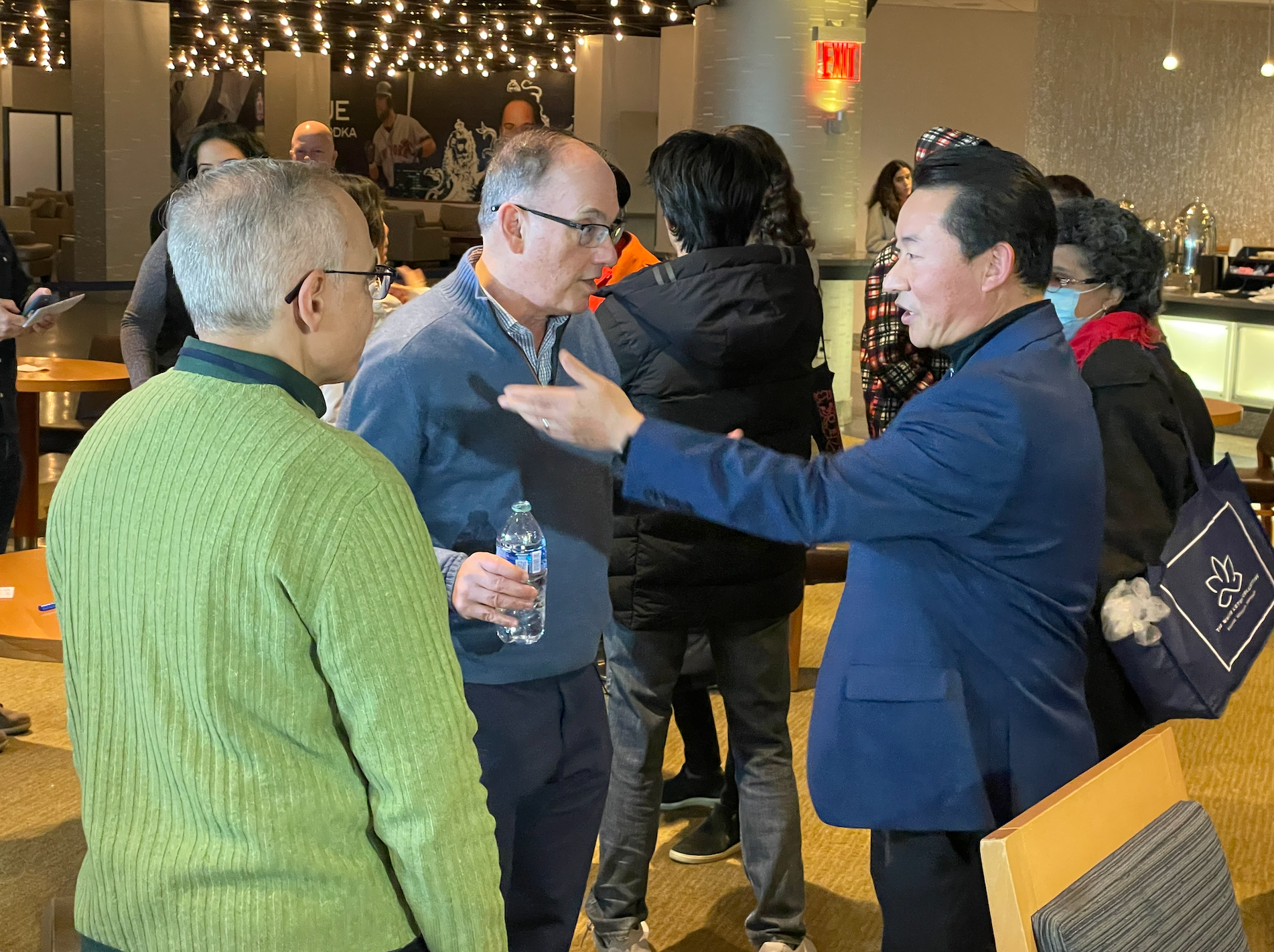
Following Saturday’s visioning sessions in Flushing, Cohen’s team will announce another round of upcoming visioning sessions next week.

